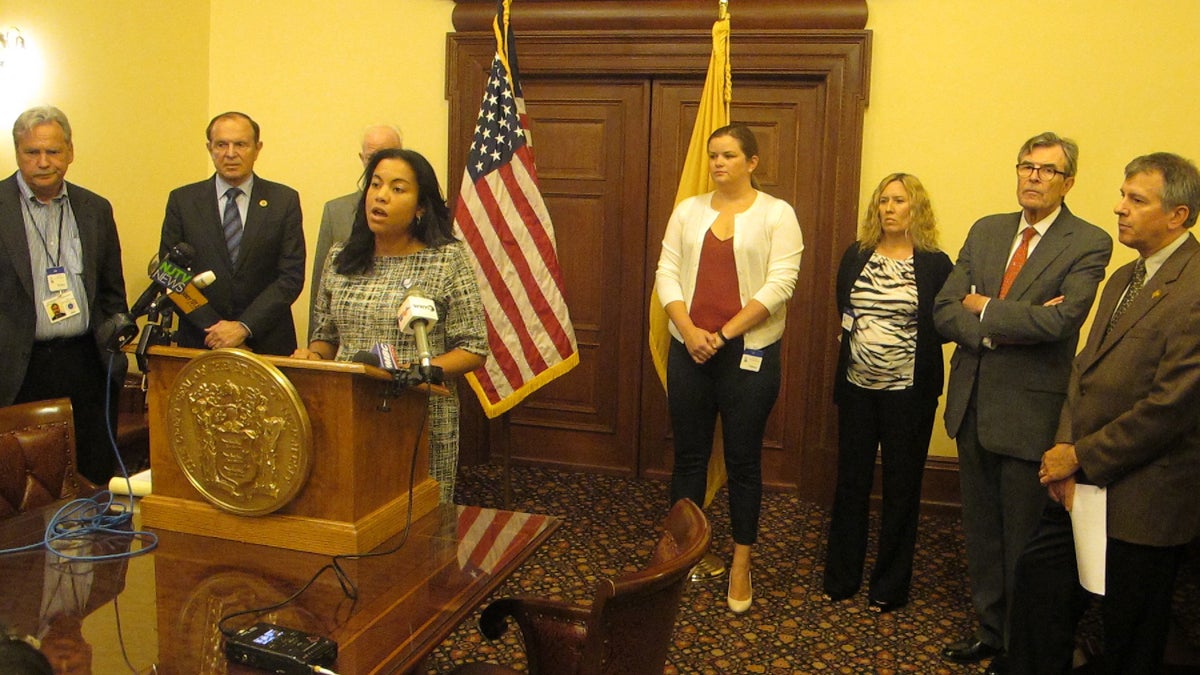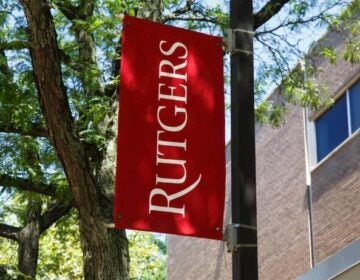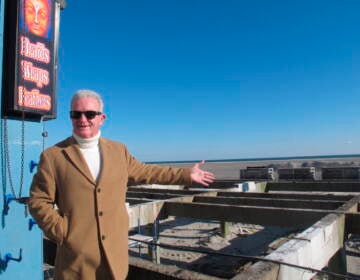Opposition coalesces against N.J. plan for replenishing transportation fund

Opponents say the Transportation Trust Fund plan New Jersey lawmakers will vote on Wednesday is fiscally irresponsible. (Phil Gregory/WHYY)
As New Jersey lawmakers prepare to vote on a plan to renew the Transportation Trust Fund, opponents are calling it fiscally reckless.
New Jersey Sierra Club director Jeff Tittel Tuesday questioned whether the plan guarantees transportation funds will be used for needed road and bridge improvements.
“Because there is no ‘fix it first’ language in here, it may not go to fix bridges or to mass transit,” he said of the plan. “It can go for new sprawling highways that will induce air pollution and growth in other places. We’re concerned it’s going to become a legislative play-to-pay system where basically you vote for this and you get your special projects.”
Analilia Mejia, the director of the New Jersey Working Families Alliance, said the average family won’t save enough from the eighth-of-a percent cut in the sales tax to make up for a 23-cent increase in the gas tax.
“They would have to spend just a little bit above $45,000 in taxable goods in order to offset essentially $107 of increased gas tax money that they’re going to be paying in the pumps,” she said. “So the reality is that this is not tax fairness.”
Sen. Ray Lesniak said he favors phasing the gas tax in gradually.
“This is Trenton insanity at the worst that I’ve ever, ever seen it. I know we have to increase the gasoline tax. We have to repair our roads. We have to make infrastructure repairs,” said Lesniak, D-Union. “But we don’t have to increase it 23 cents a gallon right off the get go.”
The plan also calls for the elimination of the estate tax. Opponents say that would benefit only the top 4 percent of households in the state.
New Jersey Education Association executive director Ed Richardson worries that the loss of revenue from the tax reductions could jeopardize funding for essential services.
“The only break targeted to help low-income New Jerseyans, the Earned Income Tax Credit, represents about 4 percent of the total tax cuts. The rest of this package skews toward high-income residents,” Richardson said. “That’s not tax fairness. It’s welfare for the wealthy.”
WHYY is your source for fact-based, in-depth journalism and information. As a nonprofit organization, we rely on financial support from readers like you. Please give today.




